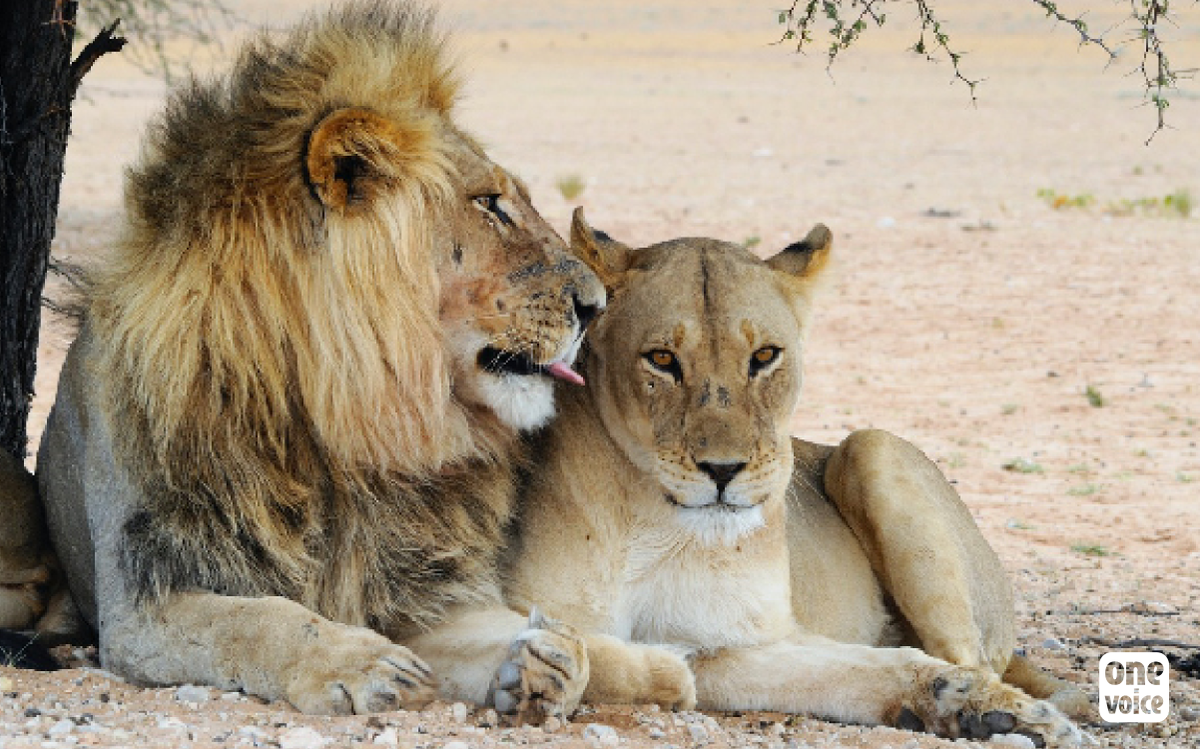

Eco volunteers diverted in favour of the trophy hunting of big cats
Take action against living in a world without lions? This type of action is commendable. Opt for eco-volunteering on farms, feed and cuddle wild animals thinking that you are contributing to the protection of wild animals? One Voice has investigated this subject and permits itself to doubt this. The association shows you how a good intention can be diverted and used to assist a lucrative and horrifying business: The development of wild animal farms and trophy hunting in South Africa.
Eco-volunteering: The beautiful promise of wild animal farms
According to an article in The Guardian, 160 wildlife farms are registered in South Africa and legally invite for money lovers of wild animals to contribute to the protection of the wildlife and to the preservation of genetic diversity. Their mission? Feed and cuddle lion cubs or other baby animals whose mothers are no longer able to do so for lack of milk. Visitors are invited to feed the new-borns by hand, to cuddle them and why not. And the opportunity to have the moment immortalized by a professional photographer. Walks are organized in the company of big cats aged 5 to 6 years old who have been reintroduced to a reserve. The program seems enticing and everything suggests that wild beasts are the kings of the savannah. Yet the reality is quite different!
But behind the scenes: cruel treatment and living conditions for the big cats
One Voice leads a daily nonviolent struggle for animal rights and the respect for all life, which is why the association investigated these businesses internally in 2015, the investigation only draws a sad picture which is shared by other associations.
Delivered to the visitor farms, the little ones find themselves in cages, stressed by the permanent contact from the volunteers. All this to sell a magical interaction with the public and hide the angst of the new-borns, the employees use several deplorable practices towards these young animals. They blow on their faces to prevent them from crying out, throw them in the air to stun them or simply drug them so that they do not wander back and forth in the cage; this being typical behaviour of stressed animals.
Reserves on the other hand are only enclosed spaces which are small in size and where animals are tranquilized with drugs to enable walks with volunteers. Let’s be clear on this, after spending the first years of their lives being cuddled and in contact with man, it is obvious that the return to the wildlife is impossible. Yet, to justify the existence of these farms, the opposite is asserted.
Farms: a supply of wild animals for trophy hunts
If the business of the farmers paid and they could be self-sufficient, then maintaining this is a real issue for the development of trophy hunting: these structures constitute a continual pool of wild animals ready to be slaughtered. Big cats are taken a few days before the hunt and put in an enclosed space that they cannot escape from. This practice, better known as “canned hunting”, inevitably signifies the death sentence of the animal. In 2006, 1,830 trophies were exported from South Africa, 4,062 in 2016, most of which came from capture sites.
It is time to boycott this type of structure and to move towards ethical eco-volunteering and doing something useful for animals. After the survey conducted by One Voice, Guidisto, an eco-volunteering portal has withdrawn all missions offering direct contact with big cats and directs users to volunteer to observe animals in their natural environment as well as participating in the protection of their habitat.